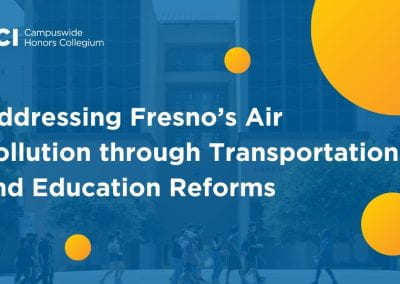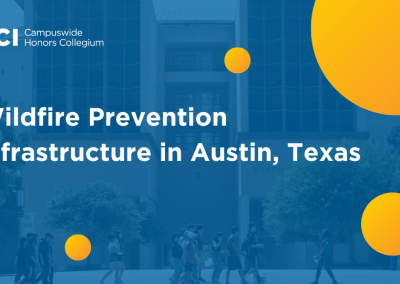Air Pollution in Fresno, CA
Abstract
This project seeks to reduce the negative health impacts of poor air quality in the city of Fresno, California, where currently, minority populations are being disproportionately impacted by air pollution. This is primarily due to the geography surrounding the city, its status as one of the top-producing agricultural hubs for the country, and its location on a major freeway. While the geography cannot be changed, the behavior of residents can be. In this way, solutions will be centered around community outreach and technological advancement. This will be done through the implementation of an educational community outreach program, as well as an electric bus fleet to reduce vehicle emissions. Funding for this project will be obtained through “The Pesticide Safety Education Funds Management Program” grant funded by the Environmental Protection Agency (EPA) as well as the “FY 2023 Competitive Funding Opportunity; Buses and Bus Facilities Program” and “FY 2023 Competitive Funding Opportunity; Low or No Emission Vehicle Program” grants funded by the Federal Transit Administration (FTA). The total funding requested from these grants is $23,990,581.76. In order to measure the impact of the project, public surveys, public health data, traffic data, and air quality index (AQI) data will be compared every four months. In partnership with AirUCI, initiative will be taken to improve air quality and thereby quality of life for Fresno’s residents. The project itself is organized around pre-existing peer-reviewed articles discussing the potential for success of such proposals, as well as historical AQI and health data illustrating the need for such change. This data, alongside financial research, allow for the provision of a cost-benefit analysis, further elaborating on the exact usage of the proposed grant money and balancing the sum against the expected improvements to AQI and public health.



